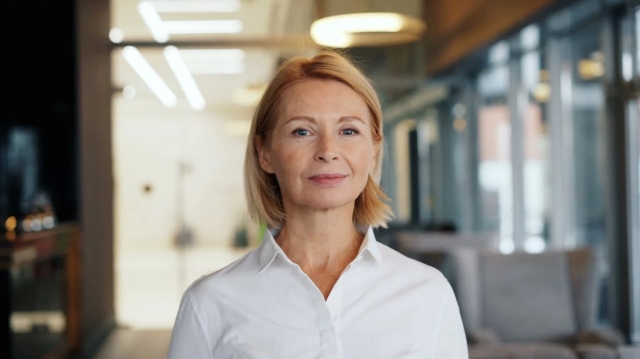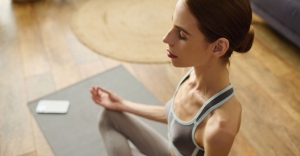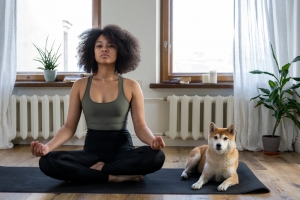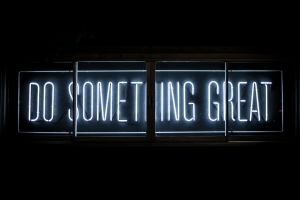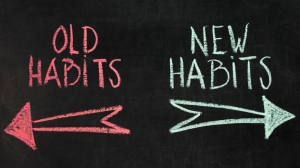What's it like when you're in your 50s? Let's break it down:
- In your 50s, you might start having problems with your blood pressure. Then, as research shows, two out of three adults in their 60s end up with high blood pressure.
- Your 50s also demand that you exercise more, especially if you are a woman. Do otherwise, and you risk harming your physical health during your later years.
- Then comes the issue of aging: you'll feel that your skin is becoming thinner and also less elastic.
So, what can we draw from all these conditions in your 50s? Simple: you'll look and feel older and won't be able to be as physically strong as you were in your youthful days.
But, your 50s don't have to be a decade of slowing down. If anything, this is your time to refine your lifestyle, prioritize your health, and keep your energy levels high. After all, the last thing you'd want is to be called ‘old' in your 50s, when it's actually not the case.
Thus comes the need to look younger and stay energized in your 50s. Unfortunately, there isn't any miracle cure or medication to help you do that. Instead, you have to adopt habits that make your body work better for you.
Your Body Changes in Your 50s, and So Should Your Diet
In your 50s, the goal is to eat in a way that supports your metabolism, protects your skin, and keeps your immune system strong.
Whole foods rich in antioxidants, healthy fats, and lean proteins give your body what it needs to repair itself. If you've noticed that you're gaining weight more easily or struggling with energy dips, refined sugars and processed foods are likely culprits. Cutting back on those and focusing on nutrient-dense meals can work wonders.
Hydration also plays a major role in keeping your skin looking youthful. Drinking enough water helps prevent fine lines and wrinkles from becoming more pronounced, and it keeps your body functioning smoothly. If plain water feels too boring, herbal teas or water infused with fresh fruits can be an enjoyable way to stay hydrated.
Staying Active: Move Like You're 30 Again
Your energy levels are directly tied to how often you move. While high-intensity workouts might not be for everyone, regular strength training and flexibility exercises can make you feel stronger in daily life.
Resistance training helps maintain muscle mass, which naturally declines as you age. The stronger you stay, the better your posture, balance, and overall vitality.
If the gym isn't your scene, find ways to stay active that you actually enjoy. Dance classes, hiking, swimming, or even long walks can keep you fit without feeling like a chore.
Consider Peptide Therapy
If you're looking for an extra boost to keep your body in top shape, peptide therapy offers an innovative way to support healthy aging. Peptides are short chains of amino acids that help regulate various functions in the body. According to EVEXIAS Medical Centers, they play a role in everything from immune system support to weight loss and skin health.
One of the biggest reasons people explore peptide therapy in their 50s is to help with cellular repair and recovery. As the body ages, it produces fewer peptides, which can slow down metabolism and contribute to sagging skin, fatigue, and overall sluggishness. Peptide therapy can help fill this gap by stimulating the body's natural processes.
If you're living in certain parts of the US, coming across peptide therapy centers might be easier for you. Take Texas as an example; the state has the third-largest older adult population in the US. So, it's easy to come across these centers here since as many people might be needing their services. Thus, people can easily access centers that offer peptide therapy in Southlake, TX, as well as in other cities like Houston, San Antonio, etc.
Good Sleep Always Helps
No cream or supplement can replace the benefits of good sleep. Your body repairs itself at night, and if you're skimping on quality rest, you're fast-tracking signs of aging. Poor sleep affects everything from your skin's elasticity to your ability to maintain a healthy weight.
Hormonal shifts in your 50s can make it harder to fall and stay asleep, but small lifestyle changes can make a difference. Creating a bedtime routine, cutting back on late-night screen time, and keeping your room cool and dark can all help. If sleep issues persist, consulting a doctor can help uncover any underlying issues, such as sleep apnea, that might be interfering with your rest.
Looking young and staying energized in your 50s isn't about chasing an impossible standard; it's about giving your body what it needs to thrive. That way, you'll look younger and feel more energized than ever.
Remember this: Your best years aren't behind you; they're right in front of you. And yes, the 50s are just some numbers; you're a lot more than that.
